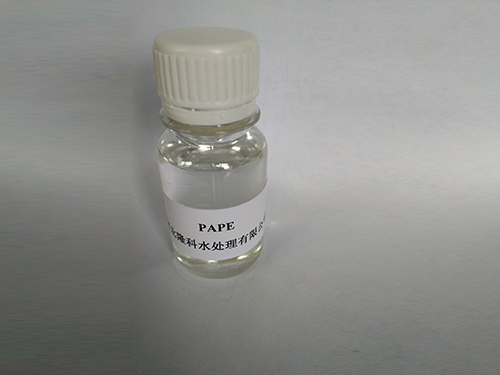Effects of Scale and Corrosion Inhibitors on Cooling Tower Performance and Efficiency
Scale and Corrosion Inhibitors for Cooling Towers
Cooling towers are an essential component in many industrial processes and HVAC systems, providing the necessary heat exchange to maintain optimal operating temperatures. However, the efficiency of cooling towers can be severely compromised by scale formation and corrosion. To address these issues, many facilities implement scale and corrosion inhibitors, which play a critical role in enhancing the longevity and efficiency of cooling systems.
Understanding Scale and Corrosion
Scale typically forms when minerals precipitate and accumulate on surfaces within the cooling tower and associated piping. Common minerals include calcium carbonate, calcium sulfate, and silica, which result from high concentrations of dissolved solids in the water. The buildup of scale can severely restrict water flow, reduce heat transfer efficiency, and increase energy costs, eventually leading to system failure if left unchecked.
Corrosion, on the other hand, occurs when metals in the cooling tower system oxidize due to contact with water and environmental conditions. Factors influencing corrosion include water chemistry, temperature, and flow velocity. Corrosion can lead to leaks, structural failures, and increased maintenance costs.
The Role of Inhibitors
Scale and corrosion inhibitors are chemical compounds added to the cooling water to mitigate these challenges. They work by either preventing scale formation or minimizing the corrosive effects of the water on metal surfaces. There are various types of inhibitors, each suited for specific conditions and types of scale and corrosion.
Scale Inhibitors
Scale inhibitors are typically phosphate-based or polymeric compounds that interfere with the crystallization process of minerals. These inhibitors either modify the structure of the crystals or disperse them, allowing them to remain suspended in the water rather than depositing on surfaces. By controlling scale, these inhibitors help maintain heat transfer efficiency, reduce pressure losses, and prolong the operational life of cooling tower components.
scale and corrosion inhibitor for cooling tower

Popular scale inhibitors include phosphonates, polyacrylic acids, and organic acids
. Selecting the appropriate scale inhibitor depends on the specific water chemistry and the types of scale commonly encountered in the system.Corrosion Inhibitors
Corrosion inhibitors can be classified into anodic and cathodic inhibitors. Anodic inhibitors work by forming a protective oxide layer on the metal surface, while cathodic inhibitors reduce the rate of the electrochemical reactions that lead to corrosion.
Common corrosion inhibitors include nitrites, molybdates, and phosphates. These compounds help control pH levels, which is crucial in preventing corrosion. Many modern cooling towers use a combination of these inhibitors to provide comprehensive protection against both scale and corrosion.
Selecting the Right Inhibitors
When choosing scale and corrosion inhibitors, several factors must be considered, including water chemistry, system design, and operating conditions. Regular water analysis is critical to understand the existing issues and to tailor the treatment program accordingly.
Additionally, regular maintenance and monitoring can enhance the effectiveness of inhibitors. Automated control systems can help maintain optimal concentrations of inhibitors and adjust for changes in water quality or system operating conditions.
Conclusion
In conclusion, scale and corrosion inhibitors are vital for the efficient and reliable operation of cooling towers. By preventing scale buildup and mitigating corrosion, these inhibitors enhance system performance, reduce maintenance costs, and extend the life of vital infrastructure. Proper selection and management of inhibitors are essential to ensure the longevity and efficiency of cooling systems, ultimately leading to more sustainable operations in industrial and commercial settings. As technology advances, the development of more effective and environmentally friendly inhibitors is expected, promising even better performance in the future.
-
Understanding Polycarboxylic Acids: Properties, Applications, and Future PotentialNewsJul.28,2025
-
Scale Inhibitor Explained: How to Protect Your System from Limescale and Hard Water DamageNewsJul.28,2025
-
Scale and Corrosion Inhibitors: Essential Chemicals for Industrial Water System ProtectionNewsJul.28,2025
-
Polyaspartic Acid: A Biodegradable Polymer for Sustainable ChemistryNewsJul.28,2025
-
Isothiazolinones: A Versatile Antimicrobial Class with Industrial Power and Regulatory ChallengesNewsJul.28,2025
-
A Deep Dive into 2-Phosphonobutane-1,2,4-Tricarboxylic Acid (PBTC)NewsJul.28,2025





